Donald Trump 23
Trump’s Impact on U.S. Youth
Trump’s Impact on US Youth

By Manuel E. Yepe
http://manuelyepe.wordpress.com/
Exclusive for the daily POR ESTO! of Merida, Mexico.
Translated and edited by Walter Lippmann.
It’s easy to imagine the formidable negative impact that the presidency of the energetic Donald Trump may be having on America’s youth.
In every action, every gesture, and every word of his behavior as head of the nation that rules the destiny of the capitalist world, Trump sends signals that being racist, sexist, homophobic, or misogynist is a merit equivalent to an honorary badge.
Historically, inept presidents are challenged, among other defects, for being liars, spoiled and rude, which are precisely the adjectives that most “adorn” Donald Trump’s daily behavior.
This is highlighted in a new book entitled The Fixers, which examines the relationship between Trump and Roy Cohn (1927-1986), an American lawyer who was best known for being Senator Joseph McCarthy’s chief advisor during the anti-Communist Senate hearings held by the Army and Senator McCarthy himself in the 1950s.
It was Cohn who orchestrated the McCarthyite persecutions of suspected communists that later extended to homosexuals. Thousands and thousands of Americans were subjected to police and legal investigations. Their lives, families, and careers were destroyed as a result.
Later, Cohn would become the personal lawyer of Donald Trump, the current president of the American nation. Roy Cohn was publicly homophobic and encouraged public persecution of homosexuals. It is now known that he himself was a homosexual man and died in 1986 at the age of 49 due to AIDS-related complications.
Trump had “distanced himself” from Cohn after he became ill. However, the President organized a “farewell dinner” in his luxurious Mar-a-Lago club shortly before his death from AIDS, according to the book mentioned above.
The book states that Trump would later recall Cohn’s visit when, in 2016, he jokingly told guests at his club that he had to have Mar-a-Lago sprayed after the man’s visit because he was dying of an AIDS-related illness. “I had to spend a fortune to fumigate all the dishes and silverware in this place,” he said amid jokes.
In an excerpt from the book published in the Wall Street Journal, authors Joe Palazzolo and Michael Rothfeld wrote that Cohn, as Trump’s first fixer, “manipulated the media and the legal system to secure business advantages for Mr. Trump. “He passed his client off as a fabulously successful developer who transformed his father’s collection of low-cost apartment buildings in Brooklyn and Queens into a Manhattan-based luxury condominium tower empire.
Trump’s views on the media and celebrities were shaped by Cohn and his successors, people he trusted to project a particular version of himself that often bore little resemblance to reality.
“Their careers with Mr. Trump shed light on his rise in public life and his victory in the 2016 presidential election. In 2017, recordings emerged of President Trump joking that he forced Princess Diana to take an HIV test before having sex with her. Trump made such horrific comments shortly after Princess Diana’s death in 1997, in a radio interview with athlete Howard Stern. When Cohn died of AIDS in 1986, his biography was as fascinating as it was despicable. His life journey made him more like a movie villain than a royal lawyer. Which might be funny if it weren’t for the fact that the consequences of his worst acts still reverberate throughout the world.
After graduating from law school at the age of 20, Cohn made a name for himself by prosecuting the couple Ethel and Julius Rosenberg on espionage charges. Even then, he set aside ethics to ensure that the Jewish couple would not only be found guilty but also sentenced to death and executed, even though the evidence was clearly insufficient to do so.
Throughout the 1950s, he became McCarthy’s right-hand man during the witch-hunt and the lawyer for mob boss Anthony Salerno. Two moves that propelled him into the circles of power – and corruption – in New York. His figure was something like a bridge between the bosses of organized crime and the politicians and businessmen who had to deal with them.
His lack of scruples and his bellicose ways made him a notorious character, who surrounded himself with the most prominent people in the country: celebrities, communication magnates, the Reagans… and Donald Trump.
The two men first joined forces when Trump, then a young construction entrepreneur, was sued, along with his father, for refusing to rent his apartments to Black tenants. Contrary to Cohn’s initial opinion, Trump settled with the plaintiffs, not without first suing the government for $100 million. Trump had learned one of Cohn’s golden rules: “never admit you’re wrong and never apologize.”
The U.S. Has Many Problems

America has a lot of problems, and Trump is targeting others.
Very serious in her assessment, Hillary Clinton said, “Our country is more polarized than ever. We ourselves have classified into opposite camps, and they divide how we see the world.”
Posted: Saturday 26 May 2018 | 09:56:09 PM
 By Juana Carrasco Martin
By Juana Carrasco Martin
juana@juventudrebelde.cu
A CubaNews translation.
Edited by Walter Lippmann.
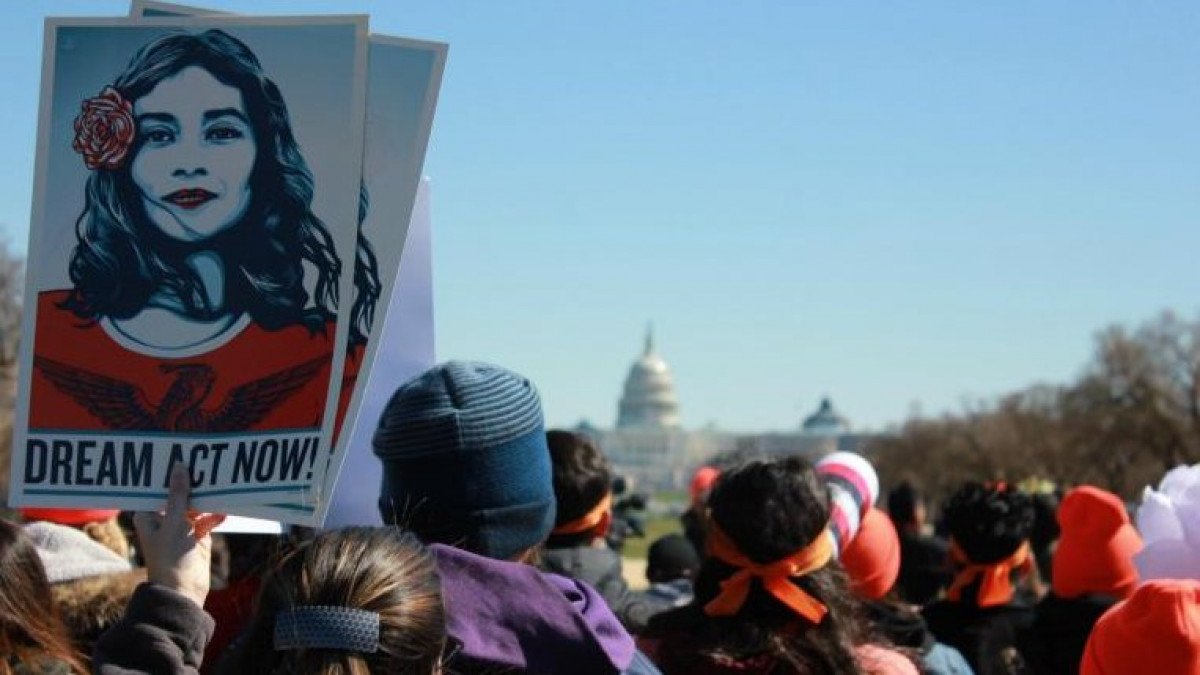
With the suspension of the DACA Plan, many immigrants are at risk of deportation. Author: Flickr Published: 26/05/2018 | 08:00 pm
President Donald Trump did not miss the opportunity and in a message for May 20 – that day when the Republic began in Cuba, mediated by a Platt Amendment that reduced its independence and sovereignty in favor of the United States and its geopolitical and economic interests – he expressed the hackneyed message about a country that claims to suffer under a “tired communist regime.”
So boring that it is not worth paying much attention to the statement on the official White House website.
However, that same Sunday, Hillary Clinton, his failed Democratic challenger, who still thinks and regrets the mistakes she made in the 2016 elections, spoke to the graduates of Yale University – her Alma Mater in law school – and was adamant in judging the situation in her country and the main value that the U.S. leaders have hoisted against Cuba as if we were suffering from it.
“Right now, we are living through a total crisis in our democracy,” the former secretary of state said. “There are no tanks on the streets now, but what is happening right now enters the heart of who we are as a nation. I say this not as a Democrat who lost an election, but as an American afraid of losing her country.”
Very serious in her assessment, Clinton said, “Our country is more polarized than ever. We ourselves have classified into opposing camps, and they divide how we see the world. There are more liberals and conservatives than there used to be and less centrists. Our political parties are more ideologically and geographically consistent…. There are more divisions of race and religion than ever before…”.
Roughly she said: “There are leaders in our country who shamelessly incite with hate speech, who fear change, who see the world in terms of zero-sum, where if some are winning, others must be losing. That’s a recipe for polarization and conflict.
An analysis of the speech at Yale shows that Hillary seemed sadder than angry and – not mentioning Trump at any point, everyone present knew that he was the target of the references – appealed to the trials of other American politicians. But the vision chosen is not flattering; what is more, it falls into the category of a worrying warning.
For example, she chose quotations from a new book by former Secretary of State Madeleine Albright, Fascism: A Warning, and from two titles by Timothy Snyder, professor of history at Yale University: In Tyranny and The Road to Freedom.
As is well known, Trump has attacked certain sectors of the press and accused them of being propagators of false news to the point that the term fake news is already recognised without translation in almost all languages, and the day before, in a tweet, he had described Mrs Clinton as ‘dishonest’.
“To abandon deeds is to abandon freedom. If nothing is true, then no one can criticize power because there is no basis for doing so. If nothing is true, then everything is spectacle,” noted one of the former presidential candidate’s statements. That loudly sounding alarm was considered important by Mrs. Clinton, “because trying to erase the line between fact and fiction, truth and reality is a characteristic basis of authoritarianism.
And she didn’t limit herself to the opinions of Democrats, she also went to Rex Tillerson – who was recently appointed by Trump as Secretary of State – who, in a speech last week to the Virginia Military Institute, said that the United States was “on a path to renouncing our freedom,” if the leaders didn’t speak the truth. With pessimism to be reckoned with, Clinton said, “Maybe a little late, but he’s absolutely right.
And in today’s dissection of the United States, she continued: “There are certain things that are so essential that they must transcend politics,” and “evidence and facts that must alarm us all,” in what he called “waging a war against the rule of law and press freedom, delegitimizing elections, committing shameless corruption, and rejecting the idea that our leaders should be public servants undermines our national unity.
Of course, in the Clinton diatribe, the interests of a party, half-time in an election year lies behind, but the facts are the facts, and Hillary Clinton approached them from macroeconomic and social indicators: “You have learned that you don’t need to be an immigrant and be outraged when the father of a classmate… is unjustly deported” (…) “You don’t need to be a person of color to understand that when black students feel singled out and targeted, there is still work to be done. And you don’t need to experience the violence of a gun…. Enough is enough.
In the United States, children die in school because of the work and grace of an obsessive gun culture, dictated by the profits made by that industry and the politicians who respond to it because it fills their pockets. Trump is not the only culprit, but it is his turn to face it; however, it is far from his vision and interests.
More Americans die in these shootings than in the wars in which the empire is engaged, and no one doubts that life is the greatest of human rights.
A few days ago a black citizen was arrested for his Facebook messages against racist violence, and four students from the group that participated in an anti-gun demonstration in front of the office of Senate Chief Paul Ryan at the Capitol were also arrested, This clearly shows the lack of respect for freedom of expression that the empire’s administrator proclaims and protects its Magna Carta.
Judge Naomi Reice Buchwald, of the Southern District Court of New York, has just said that President Trump’s Twitter account is a public forum and blocking response messages with different opinions constitutes discrimination and violates the First Amendment to the Constitution; but a Justice Department spokesperson replied that they disagree with the court’s decision and is considering steps to be taken that will protect the president.
It was also reported that the National Security Agency (NSA), under the auspices of the Foreign Intelligence Surveillance Act (FISA), recorded more than 530 million phone calls in 2017, a dramatic increase in espionage from 151 million in 2016.
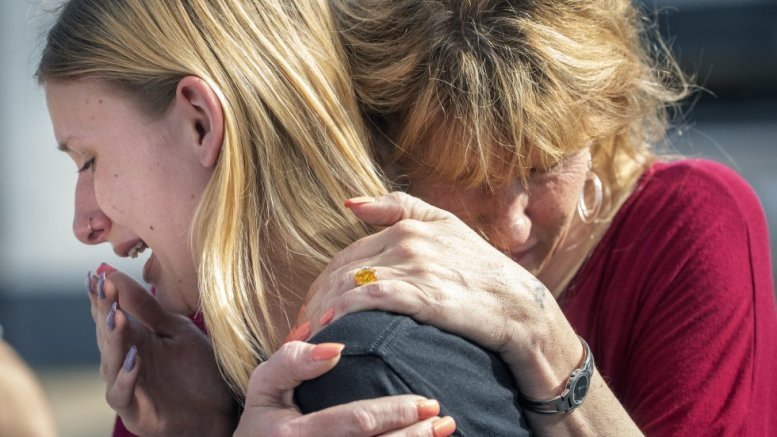
These are just some of the violations of those political and civil rights of American citizens, of the laws that privilege a government and a system of the rich and for the rich. Also, much can be said about the pressures, arm twists, unilateral sanctions, aggressions, wars and military interventions that call into question its self-given role as the perfect state, capable of judging and punishing others, and closing its eyes to its own domestic macro-problems and enormous flaws.
Between Trump and the Deep State
Between Trump and the Deep State

By Manuel E. Yepe
http://manuelyepe.wordpress.com/
Exclusive for the daily POR ESTO! of Merida, Mexico.
Translated and edited by Walter Lippmann.
In the political lexicon of the United States, since the presidency of Donald Trump, the mysterious concept of a “Deep State” has become fashionable. It’s understood as a kind of mystical adversary that the president’s cabinet must face.
The term has been used to refer to an allegedly secretly operating network of public officials working to prevent Trump from pursuing his policies. The expression is also used to allude to a de facto power of public employees whose stay in office is beyond the control of the president.
But its definition varies according to who uses it. It generally implies the existence of a secret and invisible nebula that operates from the bowels of government and that would be responsible for leaks of sensitive information from public offices, including those of intelligence and those of advisers and analysts directly subordinate to the President.
“The deep state has to stop with its shit,” Roger Stone, Trump’s old political adviser, told The New Yorker magazine on the eve of the president’s inauguration January 20.
He was referring to information published by The New York Times, citing U.S. officials, indicating that the FBI, CIA and other intelligence agencies were investigating Stone and other Trump collaborators for alleged links to Russia.
Stone denied having had such links, and blamed the “deep state” for the information disclosed.
Different media supporting the government have handled the concept, especially after it was revealed that the Micheal Flynn, Trump’s then- National Security Adviser, had withheld information about his contacts with Russia, which, according to the press, led to his having to resign shortly after taking office.
“The deep state never sleeps. It’s always doing something to undermine Trump’s administration,” said an article on Breitbart News, a right-wing Web site whose founder and former executive, Stephen Bannon, a controversial Trump trustee who was repeatedly accused of anti-Semitism and racism and who served as the White House’s chief strategist.
“The Deep State is here,” Ed Rogers, a Republican columnist in his Washington Post column, wrote a week earlier. “It is a worrying phenomenon to have the anti-Trump organizations and Democratic officials aligned conspiring to work actively against the government in office,” he said.
However, there is no shortage of analysts who reject the idea that in the US there can be a “deep state” acting in the shadows. “The term comes from a kind of conspiracy theory that does not capture what is a normal tension between bureaucrats who have been running political programs for years and who may want to change things themselves,” says Gordon Adams on BBC World.
According to many analysts, the “Deep State” actions that overwhelm Trump derive from the basic contradiction between the federal government and the invisible power of the military and corporations defined by former President Dwight Eisenhower as the Military-Industrial Complex. This tension is manifested, for the time being, as a confrontation between the White House and the intelligence community, in which the latter acts, by definition, in a reserved manner.
When he was Trump’s chief strategist, Steve Bannon defined the government’s goal as the deconstruction of the administrative state, which he believed had been set up by the political left to defend its interests through bureaucratic regulations that must now be corrected.
“If you look at the cabinet appointments, you’ll see that they were made with a goal of deconstructing the administrative state,” Bannon said in a meeting with conservative politicians.
Proof of this is that many people chosen for Trump’s Cabinet have had conflicting positions with those traditionally assigned to the departments for which they were appointed.
For example, for the Environmental Protection Pgency, he chose someone with interests linked to the fossil fuel industry who doubts the existence of climate change. As Education Secretary, he selected a millionaire who is an enemy of public education and public schools. For the Health Department, he chose a doctor who believes that the problem is that “there is too much government involvement in health care.
There are those who appreciate that this conflict of interest between senior government officials and civil service officials supports the existence of a “deep state” operating against Trump as an unpredictable, ignorant person, one incapable of fulfilling the mandate of the dominant forces of the system… much less the mandate of the citizenry.
May 25, 2018.
A Crazy President, But Not So Much
A Crazy President…But Not So Much
 By Manuel E. Yepe
By Manuel E. Yepe
http://manuelyepe.wordpress.com/
Exclusive for the daily POR ESTO! of Merida, Mexico.
Translated and edited by Walter Lippmann.
The madman was advised and suspended his visit to Lima where he would have attended the VIII Summit of the Americas as head of the U.S. delegation. Nor will Donald Trump travel to Colombia, as officially announced. The reason given for this was that the president had to deal with the situation in Syria, a country over which a threat of war hangs as a result of the president’s own outbursts. These are based on the worn-out, paradoxical and proven-false accusations against the government of Bashar Al Assad of having used chemical weapons in its internal war against terrorism.
Sarah Sanders, White House spokeswoman, announced that Vice President Mike Pence will be in charge of Washington’s delegation, both in Lima to conduct bilateral talks with Latin American leaders who will be present at the hemispheric meeting and in Bogotá for the meetings Trump had scheduled with Colombian authorities.
There is no doubt that the pretext of the situation in Syria will serve to prevent the United States from having a resounding catastrophe in its relations with the governments of the nations of Latin America.
History shows that when the countries south of Rio Grande act together they are able to shock the empire at its deepest roots. But hardly anyone expected that, as a result of the right-wing movement that has emerged as a result of various US coups d’état on the continent, such unity would be able to achieve such encouraging results.
The planned Summit of the Americas was announced as a likely trigger for the fury of the peoples of the continent against Washington’s most recent impositions and manipulations. But the arrogance and irresponsible actions of President Donald Trump have reached such an extreme that even the rulers of Latin America, who have shown themselves to be more servile in their ties with Washington, have jumped with unprecedented firmness.
An extreme case was produced by the president of Mexico, Enrique Peña Nieto, who suggested that the New York magnate review the origin of his anger. “If your recent statements stem from frustration over domestic policy issues, your laws or your Congress, you should address them, not the Mexicans. We are not going to let negative rhetoric define our actions,” Peña Nieto said, when it was announced that President Trump had ordered the deployment of between 2,000 and 4,000 military personnel to support the Border Patrol agents on the southern border of the United States.
The Mexican president’s message also responded to a series of tweets and comments by the magnate-president, motivated by a caravan of Honduran migrants who sought to reach Mexico’s northern border with the United States.
Trump warned that he would cancel the North American Free Trade Agreement (NAFTA) negotiations if the Mexican government did not detain Central American migrants.
“It is better that the great caravan of people from Honduras, coming through Mexico to our border of weak laws, stop. NAFTA is at stake, as are foreign aid for Honduras and the countries that will allow this to happen. Congress must act now!“the president tweets threateningly.
To general surprise on the continent, Peña Nieto declared that Mexico will not be afraid to negotiate with the United States, but he demands respect. “We will never negotiate in fear.”
The Mexican Senate also demanded respect from the president of the United States and demanded that the Peña Nieto government suspend binational collaboration on immigration matters.
The four candidates for the presidency of the nation: Margarita Zavala, Ricardo Anaya, Andrés Manuel López Obrador and José Antonio Meade immediately joined in the rejection of the deployment of U.S. troops on the Mexican border. “When it comes to defending national dignity, we all speak with one voice and demand respect,” independent Congresswoman Margarita Zabala wrote to Donald Trump in her tweeter.
Peña Nieto mentioned these statements in his message to the nation while underscoring the negotiating tone with which his government has addressed the U.S. president. “The Mexican government’s efforts have been aimed at building an institutional relationship of mutual respect and benefit for both nations.
The relationship between the two countries “is intense and dynamic but that does not justify threatening attitudes or lack of respect between our countries,” insisted Peña Nieto. “If you want to reach agreements with Mexico, we’re ready. As we have shown so far, we have always been ready to engage in serious, good faith and constructive dialogue.
April 12, 2018.
Beyond Racism

Graphic Opinion: Beyond Racism
 By Adán Iglesias ,
By Adán Iglesias ,
Renowned Cuban cartoonist. Director of the humorous publication DDT.
Translated and edited by Walter Lippmann for CubaNews.
During the 2016 presidential campaign, Donald Trump was the candidate of several supremacist groups. Since his rise to power he has come to declare that among the supremacists there are “good people”.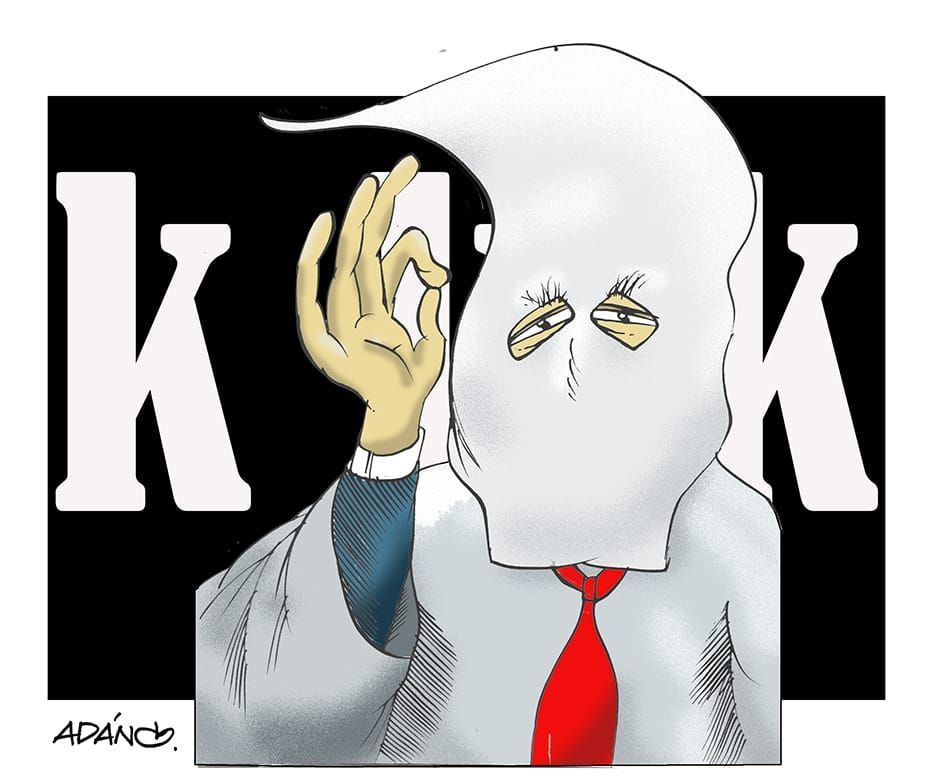
Rapacious Entities Inhabit the White House
Rapacious Entities Inhabit the White House
 By Manuel E. Yepe
By Manuel E. Yepe
http://manuelyepe.wordpress.com/
Exclusive for the daily POR ESTO! of Merida, Mexico.
Translated and edited by Walter Lippmann.
Donald Trump seems to have completed his team of “all-star” hawks that reaffirms the harshness of his power at the head of the only great power on the planet.
John Bolton, a United Nations critic, and advocate of the war against Iraq, Iran, North Korea, Cuba and Venezuela, will be, as of April 9, National Security Advisor. As Under Secretary of State for Arms Control, Bolton was the spokesperson for Bush’s justification for invading Iraq, citing the falsely-alleged possession by its President, Saddam Hussein, of chemical and biological weapons that never appeared, nor did they exist.
Mike Pompeo, whom Trump presented as the most loyal member of his cabinet, has been appointed head of diplomacy in Washington, is a follower of the Tea Party’s ultraconservative philosophy. His political career has been financed by the reactionary brothers Charles and David Koch, one of the most influential extreme right-wing power groups in the United States.
With the backing of the Koch brothers, Pompeo was elected to the House of Representatives in 2010 until Trump appointed him CIA director. In that capacity, he raised fears of a return to the practice of assassinating foreign leaders when he invoked the possible assassination of North Korean communist leader Kim Jong-un.
Pompeo has been in favor of “regime change” in North Korea and of sabotaging the nuclear agreements with Iran.
The Bolton-Pompeo duo will be joined by UN Ambassador Nikki Haley, always remembered for her despotic threat of retaliation against countries whose diplomatic representatives voted against Washington’s decision to recognize Jerusalem as the capital of Israel.
Common to all of Trump’s newly-appointed diplomatic leaders is his interventionist and “Monroeist” stance on Latin America and his affinity with Republican Senator Marco Rubio. The latter is a controversial figure who stands out for his aggressive stance toward Cuba, a country he has never visited, and who is described by the media as an opportunistic Cuban-American.
In recent days, Ambassador Nikki Halley convened a meeting at Florida International University with anti-Cuban members of Congress Ileana Ros-Lehtinen, Marco Rubio, Carlos Curbelo and Mario Díaz-Balart to discuss “how democracy can be strengthened in Latin America and especially in Venezuela and Cuba,” although, according to Senator Marco Rubio, the current state of U.S. business was also discussed.
Rubio has rejoiced in the appointment of the new White House counselor: “I know John Bolton well, he is an excellent choice and he is going to do a great job as a national security adviser,” Rubio wrote on his Twitter account.
In return for the favors that Trump apparently owes him, Senator Rubio has increased his ascendancy in current U.S. foreign policy by appointing former U.S. Ambassador to the OAS Carlos Trujillo, a budding political figure in the Florida State House, akin to the senator.
Keep in mind that the new Secretary of State, Pompeo, has been one of the main supporters Marco Rubio has had in putting together the sinister story of the sonic attacks on accredited officials at the U.S. Embassy in Havana. The design and development of this plan are attributed, by some observers, to CIA plans aimed at hindering and eventually interrupting the process of rapprochement with Cuba initiated by the Barack Obama administration. At the same time, this would place the ambitious Senator Rubio under presidential luminaries who would point to him as a likely Republican party candidate to succeed Donald Trump in the 2020 elections.
Mike Pompeo, now named head of the State Department to replace Rex Tillerson, was considered a hard-line Republican congressman before Trump named him director of the CIA. He is credited with playing an important role as a mediator between the agency and its commander in chief, who has not hesitated to compare the US intelligence services with those of the Nazis.
Hours before Trump announced that he would meet with the North Korean leader, Pompeo was seen in the Oval Office with the President during a White House meeting with a South Korean delegation.
Pompeo had previously played an important role in the investigation into Russia’s alleged attempts to influence last year’s US elections.
March 29, 2018.
First Results of Trump’s Miami Speech
First Results of Trump’s Miami Speech
By Iroel Sanchez
June 17, 2017
A CubaNews translation by Walter Lippmann.
By Iroel Sanchez
June 17, 2017
July 30 is a day of national mourning in Cuba. On that date, each year, the streets of Santiago de Cuba are filled with a spontaneous pilgrimage; rose petals fall from the balconies, and people walk in silence towards the cemetery.
This yearly pilgrimage is a remembrance of the popular reaction of the city in response, in 1957, to the murders of young Frank País and Raúl Pujol by the police of Fulgencio Batista. It is also a remembrance of all the many who were victims of similar actions.
It was the son of one of Frank and Josue’s murderers whom the US President Donald Trump chose for the storytelling in the speech he delivered in Miami June 17. A violin in the hands of the offspring played –out of tune– the notes of the US national anthem.
In a theater that bears the name of one of the invaders that –under the orders of the CIA– suffered an embarrassing defeat at Playa Girón [Bay of Pigs], a politician many consider a “loser”, promised more of the same the whole world –and even his predecessor in office– recognized as doomed to failure.
The audience –mostly elderly Miamians who have not set foot in Cuba in decades– shouted, “USA, USA,” while the president announced that citizens of “the land of the free” will continue to be banned from engaging in tourism in Cuba. If they travel to the island they must do so in a group and with a detailed and auditable logbook, so that Big Brother can adequately confirm if they fulfill the mission that their government has given them: to overthrow the “regime” that has made sure that crimes such as those of December 30, 1957, never happen again o n the island.
The same President, who signed a $100 billion contract for arms sales to the Saudi Arabian monarchy less than a month ago, signed another in the presence of people who practiced terrorism. The objective: to prevent a single US penny from reaching the Armed Forces of the Republic of Cuba. He also promised to prevent trade and investments that do not exist today.
With the balance of his campaign promises showing more debits than credits and threatened by a congressional investigation following his pressure on former FBI director James Comey, Mr. Trump seems to have found among the Cuban-American ultra-right in Miami a way to show he is true to his word and to be applauded.
But rhetoric cannot conceal a reality: 73% of Americans and 80% of Cuban-Americans support the end of the blockade of Cuba, and Trump’s announcements this Friday will only increase that rejection. Time will tell. The day before the speech, Trump managed to make the analysts of The Miami Herald agree with those of The New York Times.
South of the Florida straits we did not have long to wait. The first results of Trump’s show in Miami are already perceptible in Cuba: there is more talk about politics. In social networks many young people, who do not usually discuss these issues, express their indignation with the Miami speech of the American President. Since the kidnapping of Elian Gonzalez, Cubans had not seen such a clear image of the Jurassic Park that would be ruling Cuba if there was no Revolution.
Sunday Special: US Cartoonists on Trump

Sunday Special
A sample of what some of the most renowned American caricaturists post about the politics of Donald Trump
Juana@juventudrebelde.cu
June 17, 2017 23:02:29 CDT
A CubaNews translation by Walter Lippmann.
Instead of the accustomed texts, the three of Sunday arrive with the vision that some of the most renowned American caricaturists publish in the media on domestic and foreign policies developed by Republican President Donald Trump, or his way of leading that nation .



What Will Trump Say About Cuba?
What Will Trump Say About Cuba?
By Dr. Néstor García Iturbe
A CubaNews translation by Walter Lippmann.
EL HERALDO GROUP sarahnes@ …
“THE FEELING OF FULFILLING THE MOST SACRED OF THE DUTIES,
TO FIGHT AGAINST IMPERIALISM WHEREVER IT IS”
CHE
////////////////////////////////////////////////////////////////////////////////////////////////////
There is an expectation among a good number of people, especially in Cuba and in Miami, about what Trump might say in relation to our island in the declarations he is about to make in the near future in the city of Florida.
Some wish that these statements would provoke Armageddon and that everything that has advanced in the relations between the two countries will be without effect and we will return to the time in which hostility is the main reason that governs our relations.
Others, whom I believe have a more objective approach, suggest that there will be some changes in what Obama has established, but many issues will remain as they have been until now, especially those that could affect business profits, jobs, immigration policy, and campaigns against Cuba, such as those related to religious freedom, so-called political prisoners, human rights and ideological-political subversion.
It should not be surprising, according to the rumors running on Calle 8, that some issues be added to U.S. claims, among which may be to demand that people who are considered to have debts with justice be delivered to the United States, impose sanctions and visa limitations on certain Cuban officials and act against the entry into the United States of Havana Club rum. The problem with the claims is another one that has also been considered to be included in Trumps’s speech , that if it includes all that is desired by some in Miami, it will last about three hours.
In relation to something on Radio Bemba in Miami, we could also say that also in the United States people who have debts with Cuban justice, many of them for having committed acts of terrorism, in or against the island and its citizens, I do not think there is any interest in sending those terrorists to Cuba to be tried. The main interest of the government of the northern country lies in Joanne Chesimard [Assata Shakur], a woman, a militant of an organization that fought for the rights of blacks. She was accused unjustly of having committed a crime, and whom they say is in Cuba.
As to limitations and sanctions, it is possible that again and have been so many times raised that the food that Cuba buys and if it manages to buy medicine in that country, they can not go to military installations. As for tourism, they say they are thinking of banning business with Gaviota, because they consider that MINFAR (the Ministry of the Armed Forces) runs this company, hence it could be deduced that the visa limitations and sanctions would be to civil servants who now occupy positions in our government, but they come from the Armed Forces.
That of Havana Club rum is a business problem, as the Bacardí firm feels strongly affected and is precisely the one that delivers large amounts of money to the electoral campaigns of US politicians of Cuban origin. This is the time to pay off that debt, and business people understand that politicians have enough influence on Trump to do something about it, if that were possible.
The financial demands between the two countries could be another issue touched on by Trump. It is true that this is a long-term problem, because the United States demands $8 billion from Cuba and we demand $120 billion from them. The Miami speech could give Trump the opportunity to argue that those Cubans whose property was nationalized, and who traveled to the “land of democracy” and became US citizens, will be included in the claims they present.
Many of these issues, as discussed in this article, are rumors, which stakeholders put into the possible pronouncements that Trump could make to try to reach their ears and take them into consideration. Those in charge of trying to do this are the Representatives of Cuban origin who have been closer to Trump lately.
There are other elements that can not be left out of the analysis. The first is Trump himself, who is quite difficult to predict. The second, in my opinion, is Greenblatt, that of the Cuban grandfather. According to him, the number two person of the Trump Corporation, appointed as presidential negotiator, the third is Sonny Perdue, recently named by Trump as Secretary of Agriculture. On several occasions Purdue has mentioned the benefits which would be obtained from agricultural trade with Cuba.
Trump, as always, may surprise us. He may say that his policy will maintain everything that implies economic benefits for the United States, increasing jobs, increasing trade possibilities (which would reduce the United States’ negative trade balance), maintaining a system to ensure orderly immigration of people and the exchange between civil entities of both countries.
Other matters of interest (such as Havana Club rum) should be analyzed more deeply, which will be reported to the extent that he has decided what to do.
He will maintain US support for what they are fighting for in Cuba for the “liberties”, the “human rights” and the liberation of “political prisoners”. He will demand the sending to the United States of fugitives of justice who may be refugees in Cuba. Above all this, he will order an immediate start to talks with the Cuban government.
The latter he will leave until the end, as a good communicator that is, to leave a good impression on the audience, who must be pleased with the proposal to maintain a degree of hostility towards Cuba.
I could be wrong. To err is human and especially of humans who say what they think will happen.
The one who does not bet does not lose, but does not win either.
“With Trump there will be no reversal in the relationship between the US and Cuba”
- English
- Español
Opinion: “With Trump there will be no reversal in the relationship between the US and Cuba”
By Telma Luzzani
Sputnik Mundo
A CubaNews translation.
Edited by Walter Lippmann.
Cuban academic Néstor García Iturbe assured us of this based on the campaign promises of the president-elect, but also because he believes that it is in the interest of both countries to keep what has been achieved and to advance further. With optimism, he believes that now that Congress is in Republican hands one of the first steps Trump will take will be to lift the blockade.
The diplomat who holds a PhD in History from the University of Havana is confident that Donald Trump and President Raul Castro will find common ground for agreement.
“I believe that the policies of the Republican President will be not only more beneficial for the United States but also for Cuba. He promised measures that would limit US interference in other countries,” recalled García Iturbe.
He also thinks that Trump will lift the economic blockade against the island because: “there are many American companies eager to do business.”
Anyway, the Cuban government scheduled military exercises as a kind of message to the White House. “The periods of transition between two US administrations are often dangerous: if there is aggression or military action by the US, neither the outgoing nor the incoming president is really in charge; one, because he is leaving office and the other because he has not taken office yet.” García Iturbe calls this period the “limbo of power”. Our message is: If there is a problem we are ready to take action. However, I believe that Venezuela and Syria are in greater danger. “In this “limbo”, there could be a new attempt to overthrow President Nicolás Maduro,” he said.
On the other hand, Mexican journalist Cecilia González looked at some of the hundreds of referenda which were voted on Tuesday in different US states: legalization of marijuana, the death penalty, solar energy and slavery. “In many cases, the results were surprising,” she said. González also referred to the “infinite sadness” that Mexicans feel outside and within the United States because the Republican candidate´s discourse exacerbating rejection of Mexicans, “promoting a culture of contempt and hatred.”
Comparative media analysis discussed the coverage by the Los Angeles Times, the only newspaper to publish a poll which projected Donald Trump a winner, although the paper, as most, supported Hillary Clinton and The Washington Post where media expert Margaret Sullivan criticized the press (including the newspaper where she works) under the title “The Media Did Not Want to Believe that Trump Could Win and Therefore Looked the Other Way.” Journalists with university degrees, urban dwellers, and mostly progressive, usually live and work in New York and Washington DC or on the West Coast. And although they would cover other cities in the country, and talk to miners and the unemployed, they did not take them enough into account.
The program also reported on the suicide bombing against a German consulate in the Afghan city of Mazar i Sharif, which left at least four people dead and hundreds wounded; it also reported on the statement of the Inter-American Commission on Human Rights that denounced the case of the missing students of Ayotzinapa (Mexico) which still has more than 200 loose ends due to failures of the official research.
Opinión: “Con Trump no va a haber marcha atrás en la relación entre EEUU y Cuba”
Por Telma Luzzani
Sputnik Mundo
Opinión: “Con Trump no va a haber marcha atrás en la relación entre EEUU y Cuba”
Voces del Mundo
15:14 11.11.2016(actualizada a las 15:17 11.11.2016) URL corto
Lo aseguró el académico cubano Néstor García Iturbe basado en las promesas de campaña del presidente electo pero también porque considera que interesa a ambos países mantener lo logrado y avanzar más. Con optimismo, cree que ahora que el Congreso está en manos republicanas una de las primeras medidas que tomará Trump será levantar el bloqueo.
El diplomático y Doctor en Historia por la Universidad de La Habana confía en que Donald Trump y el presidente Raúl Castro se van a poner de acuerdo.
“Creo que las políticas del republicano van a ser no sólo más beneficiosas para Estados Unidos sino también para Cuba. Él prometió medidas que limiten la injerencia norteamericana en otros países”, recordó García Iturbe.
También piensa que va a levantar el bloqueo económico contra la isla ya que “hay muchas empresas norteamericanas deseosas de hacer negocios”.
De todas formas, el gobierno cubano programó ejercicios militares como una forma de mensaje a la Casa Blanca. “Los períodos de transición entre dos gobiernos norteamericanos suelen ser peligrosos: si hay una agresión o una acción militar por parte de EEUU el presidente saliente no se hace cargo porque se está yendo y el entrante tampoco porque cree que todavía no le corresponde.” García Iturbe llama esto el “limbo de poder”. “Nuestro mensaje es: si hay algún problema nosotros estamos listos para intervenir. Aunque en este momento yo creo que los que están en más peligro son Venezuela y Siria. En este “limbo”, podría haber algún nuevo intento de derrocar al presidente Nicolás Maduro”, aseguró.
Por otra parte, la periodista mexicana Cecilia González analizó algunos de las centenas de referéndum que se votaron el martes en distintos estados norteamericanos: legalización de marihuana, la pena de muerte, energía solar y esclavitud. “En muchos casos los resultados fueron sorprendentes”, afirmó. González relató además la “tristeza infinita” que sienten los mexicanos fuera y dentro de Estados Unidos porque el discurso del republicano exacerbó el rechazo hacia ellos, “instalando una cultura del desprecio y del odio”.
En comparación de medios se analizó la cobertura de Los Angeles Times, el único diario que publicó una encuesta que daba ganador a Donald Trump aunque como la mayoría apoyó a Hillary Clinton, y The Washington Post donde la experta en medios, Margaret Sullivan, criticó a la prensa (incluyendo el diario donde trabaja) con el título de “Los medios no querían creer que Trump podía ganar y entonces miraron para otro lado”. Los periodistas con títulos universitarios, urbanos y en su mayoría progres generalmente viven y trabajan en Nueva York y Washington DC o en la costa oeste. Y aunque vayan a cubrir por unos días otras ciudades del país y hablen con mineros y desocupados, no los toman en cuenta lo suficiente.
En este programa se informó, además, sobre el atentado suicida contra un consulado alemán en la ciudad afgana de Mazar i Sharif que dejó al menos cuatro muertos y centenares de heridos y sobre la declaración de la Comisión Interamericana de Derechos Humanos que denunció que en el caso de los estudiantes desaparecidos de Ayotzinapa (México) hay aún más de 200 cabos sueltos debido a las fallas de investigación oficial.
Subscribe to Blog via Email
| M | T | W | T | F | S | S |
|---|---|---|---|---|---|---|
| 1 | ||||||
| 2 | 3 | 4 | 5 | 6 | 7 | 8 |
| 9 | 10 | 11 | 12 | 13 | 14 | 15 |
| 16 | 17 | 18 | 19 | 20 | 21 | 22 |
| 23 | 24 | 25 | 26 | 27 | 28 | |


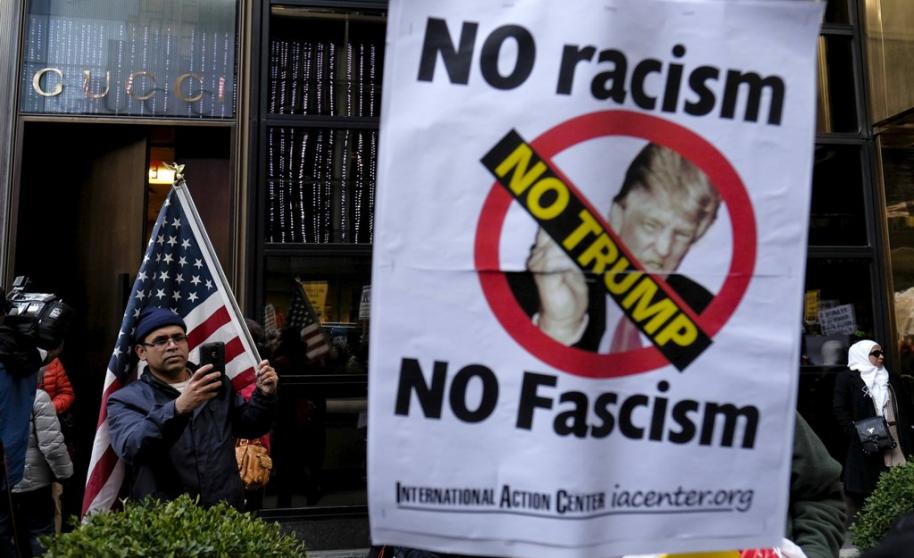
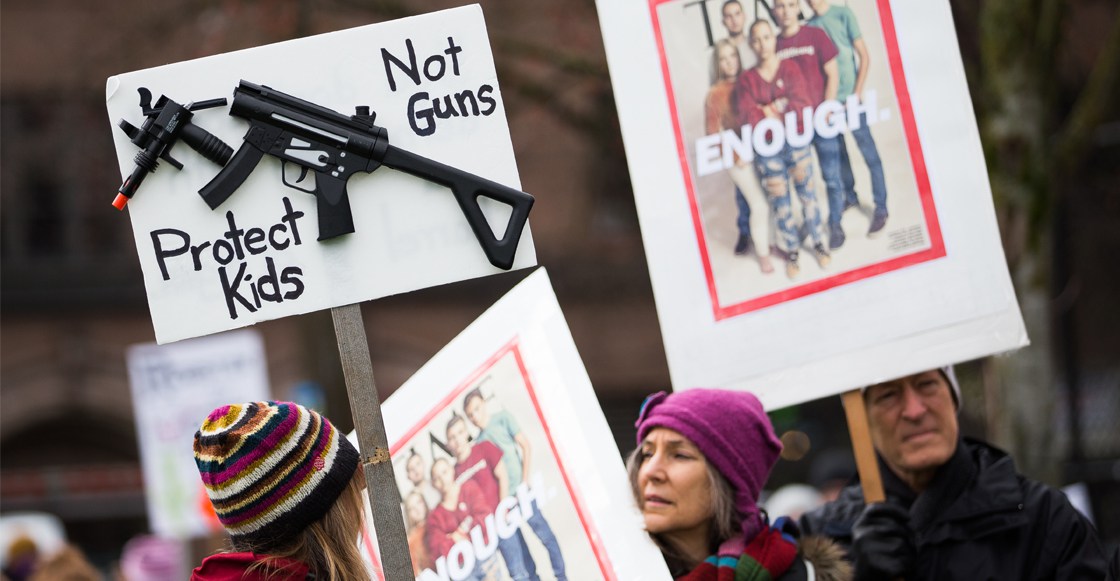
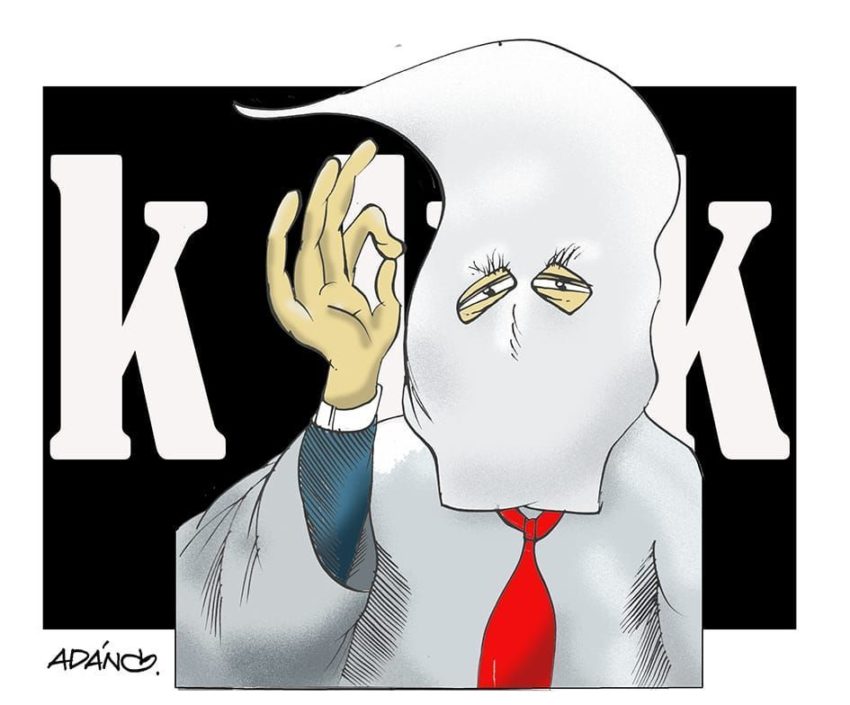
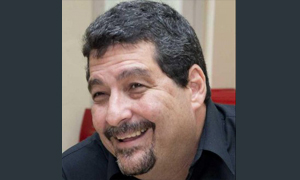
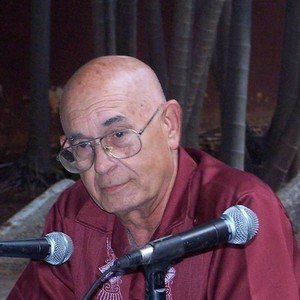
You must be logged in to post a comment.